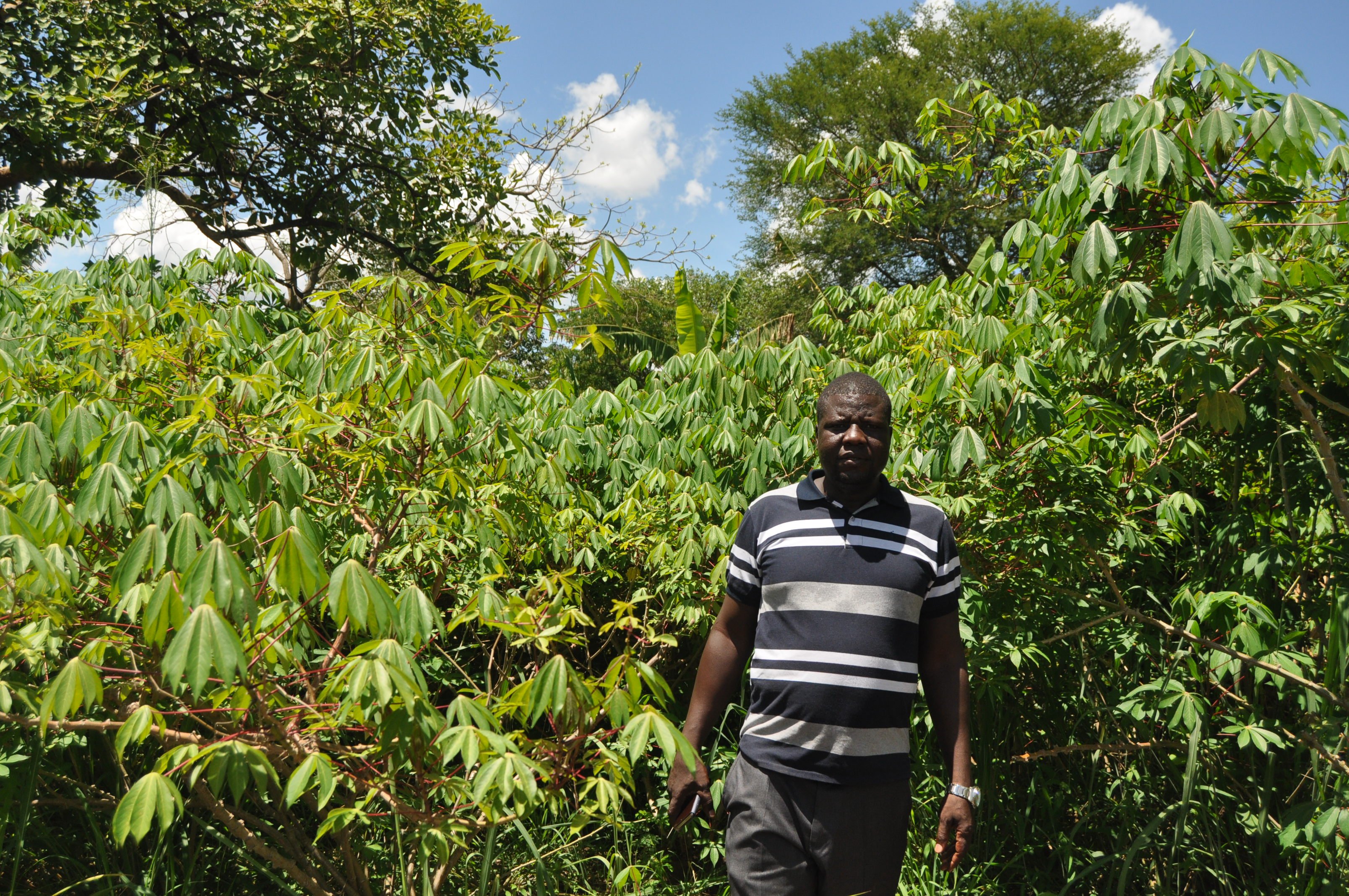Farmers short on cassava stems over virus attack

A farmer in his cassava garden in Lakwana Sub-county, Omoro District recently. Cassava farmers in Nwoya District have been affected by Brown Streak Virus. PHOTO/ CAROLINE AYUGI
Cassava farmers in Nwoya District have failed to find suitable cuttings for planting following the outbreak of Cassava Brown Streak Virus .
According to farmers, the disease ravaged their cassava gardens between 2017 and 2019.
Ms Christine Apiyo, a farmer in Akili Village in Koch Goma Sub-county, told Daily Monitor that she lost five acres of cassava plantation to the disease in 2018.
Just like many other farmers in Nwoya, Ms Apiyo embraced cassava growing when the district passed an ordinance eight years ago.
Initially, during harvest period, Ms Apiyo says she would collect about Shs1.8m from an acre of cassava.
“I lost nearly Shs10m when the disease affected five acres of my cassava garden. I also had to abandon the construction of my new building because of lack of money,” she revealed.
In 2013, Nwoya District passed an ordinance requiring every household to plant at least an acre of cassava for food security and boosting of livelihoods.
However, following the outbreak of the Brown Streak Virus, the district agricultural and production department asked farmers to halt planting cassava in order to contain the spread of the disease that had been reported in four sub-counties.
The affected sub-counties included Anaka, Alero, Lungulu and Koch-goma.
Ms Apiyo said the district authorities also advised farmers to fallow their gardens in preparation for the next planting season.
Mr Michael Odong, the vice chairperson of Nwoya Cassava and Rice Growers’ Cooperative Society in Bwobonam parish in Alero Sub-county, a group whose 20 acres of cassava was wiped out by the virus in mid-2018, said they had planted NAROCAS-1, a cassava variety.
The variety has been recently introduced by government and is reported to be weather and disease resistant.
“Our hope to earn at least Shs30m from cassava harvest was shattered by the disease outbreak. In the past two years, we have lost an estimated Shs50m. This is because our cassava had ready market at Bukona Agro Processing factory in Nwoya, including Gulu and Arua towns,” he added.
Mr Odong said they want to plant 35 acres of the same variety but are constrained by lack of cuttings.
“Cassava is planted in April but we have moved everywhere in the district and farmers tell us they don’t have cassava cuttings,” he said.
Mr Alfred Kilama, the Nwoya District agricultural officer, blamed the virus outbreak on stubbornness among investors and development partners.
“These partners and investors ship into the district cassava cuttings and distribute them to farmers at night to avoid inspection by authorities. This is what caused the outbreak,” Mr Kilama said.
To transport cassava cuttings from one district to another, a farmer is required to possess a certificate of no objection and movement permit.
But Mr Kilama said some farmers were bringing cassava cuttings from other districts without asking the authorities to inspect them.
He revealed that government is procuring quality planting materials that will be distributed to farmers and those who are still experiencing the outbreak should destroy the old cassava varieties .
Mr Kilama advised farmers to embrace the new disease-resistant cassava varieties to minimise loss caused by viral infection.




